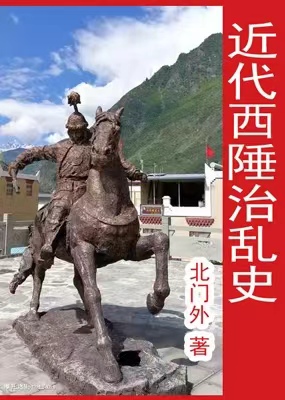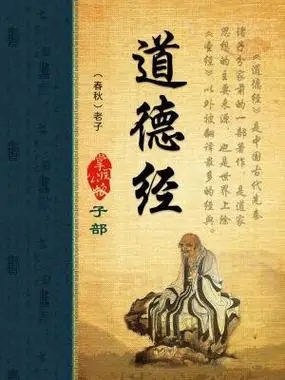The events of which we have just beheld the reverse side, so to speak, had come about in the simplest possible manner.
When Jean Valjean, on the evening of the very day when Javert had arrested him beside Fantine's death-bed, had escaped from the town jail of M. sur M., the police had supposed that he had betaken himself to Paris. Paris is a maelstrom where everything is lost, and everything disappears in this belly of the world, as in the belly of the sea. No forest hides a man as does that crowd. Fugitives of every sort know this. They go to Paris as to an abyss; there are gulfs which save. The police know it also, and it is in Paris that they seek what they have lost elsewhere. They sought the ex-mayor of M. sur M. Javert was summoned to Paris to throw light on their researches. Javert had, in fact, ren Guillaume Lambert."
Lambert is a respectable and extremely reassuring name. Thereupon Javert returned to Paris.
"Jean Valjean is certainly dead," said he, "and I am a ninny."
He had again begun to forget this history, when, in the course of March, 1824, he heard of a singular personage who dwelt in the parish of Saint-Medard and who had been surnamed "the mendicant who gives alms." This person, the story ran, was a man of means, whose name no one knew exactly, and who lived alone with a little girl of eight years, who knew nothing about herself, save that she had come from Montfermeil. Montfermeil! that name was always coming up, and it made Javert prick up his ears. An old beggar police spy, an ex-beadle, to whom this person had given alms, added a few more details. This gentleman of property was very shy,-- never coming out except in the evening, speaking to nB秘6鄑he bottom of a page. The paper announced that the convict Jean Valjean was dead, and published the fact in such formal terms that Javert did not doubt it. He confined himself to the remark, "That's a good entry." Then he threw aside the paper, and thought no more about it.
Some time afterwards, it chanced that a police report was transmitted from the prefecture of the Seine-et-Oise to the prefecture of police in Paris, concerning the abduction of a child, which had taken place, under peculiar circumstances, as it was said, in the commune of Montfermeil. A little girl of seven or eight years of age, the report said, who had been intrusted by her mother to an inn-keeper of that neighborhood, had been stolen by a stranger; this child answered to the name of Cosette, and was the daughter of a girl named Fantine, who had died in the hospital, it was not known where or when.
This report came under Javert's eye and set him to thinking.
The name of Fantine was well known to him. He remembered that Jean Valjean had made him, Javert, burst into laughter, by asking him for a respite of three days, for the purpose of going to fetch that creature's child. He recalled the fact that Jean Valjean had been arrested in Paris at the very moment when he was stepping into the coach for Montfermeil. Some signs had made him suspect at the time that this was the second occasion of his entering that coach, and that he had already, on the previous day, made an excursion to the neighborhood of that village, for he had not been seen in the village itself. What had he been intending to do in that region of Montfermeil? It could not even be surmised. Javert understood it now. Fantine's daughter was there. Jean Valjean was going there in search of her. And now this child had been stolen by a stranger! Who could that stranger be? Could it be Jean Valjean? But Jean Valjean was dead. Javert, without saying anything to anybody, took the coach from the Pewter Platter, Cul-de-Sac de la Planchette, and made a trip to Montfermeil.
He expected to find a great deal of light on the subject there; he found a great deal of obscurity.
For the first few days the Thenardiers had chattered in their rage. The disappearance of the Lark had created a sensation in the village. He immediately obtained numerous versions of the story, which ended in the abduction of a child. Hence the police report. But their first vexation having passed off, Thenardier, with his wonderful instinct, had very quickly comprehended that it is never advisable to stir up the prosecutor of the Crown, and that his complaints with regard to the abduction of Cosette would have as their first result to fix upon himself, and upon many dark affairs which he had on hand, the glittering eye of justice. The last thing that owls desire is to have a candle brought to them. And in the first place, how explain the fifteen hundred francs which he had received? He turned squarely round, put a gag on his wife's mouth, and feigned astonishment when the stolen child was mentioned to him. He understood nothing about it; no doubt he had grumbled for awhile at having that dear little creature "taken from him" so hastily; he should have liked to keep her two or three days longer, out of tenderness; but her "grandfather" had come for her in the most natural way in the world. He added the "grandfather," which produced a good effect. This was the story that Javert hit upon when he arrived at Montfermeil. The grandfather caused Jean Valjean to vanish.
Nevertheless, Javert dropped a few questions, like plummets, into Thenardier's history. "Who was that grandfather? and what was his name?" Thenardier replied with simplicity: "He is a wealthy farmer. I saw his passport. I think his name was M. Guillaume Lambert."
Lambert is a respectable and extremely reassuring name. Thereupon Javert returned to Paris.
"Jean Valjean is certainly dead," said he, "and I am a ninny."
He had again begun to forget this history, when, in the course of March, 1824, he heard of a singular personage who dwelt in the parish of Saint-Medard and who had been surnamed "the mendicant who gives alms." This person, the story ran, was a man of means, whose name no one knew exactly, and who lived alone with a little girl of eight years, who knew nothing about herself, save that she had come from Montfermeil. Montfermeil! that name was always coming up, and it made Javert prick up his ears. An old beggar police spy, an ex-beadle, to whom this person had given alms, added a few more details. This gentleman of property was very shy,-- never coming out except in the evening, speaking to no one, except, occasionally to the poor, and never allowing any one to approach him. He wore a horrible old yellow frock-coat, which was worth many millions, being all wadded with bank-bills. This piqued Javert's curiosity in a decided manner. In order to get a close look at this fantastic gentleman without alarming him, he borrowed the beadle's outfit for a day, and the place where the old spy was in the habit of crouching every evening, whining orisons through his nose, and playing the spy under cover of prayer.
"The suspected individual" did indeed approach Javert thus disguised, and bestow alms on him. At that moment Javert raised his head, and the shock which Jean Valjean received on recognizing Javert was equal to the one received by Javert when he thought he recognized Jean Valjean.
However, the darkness might have misled him; Jean Valjean's death was official; Javert cherished very grave doubts; and when in doubt, Javert, the man of scruples, never laid a finger on any one's collar.
He followed his man to the Gorbeau house, and got "the old woman" to talking, which was no difficult matter. The old woman confirmed the fact regarding the coat lined with millions, and narrated to him the episode of the thousand-franc bill. She had seen it! She had handled it! Javert hired a room; that evening he installed himself in it. He came and listened at the mysterious lodger's door, hoping to catch the sound of his voice, but Jean Valjean saw his candle through the key-hole, and foiled the spy by keeping silent.
On the following day Jean Valjean decamped; but the noise made by the fall of the five-franc piece was noticed by the old woman, who, hearing the rattling of coin, suspected that he might be intending to leave, and made haste to warn Javert. At night, when Jean Valjean came out, Javert was waiting for him behind the trees of the boulevard with two men.
Javert had demanded assistance at the Prefecture, but he had not mentioned the name of the individual whom he hoped to seize; that was his secret, and he had kept it for three reasons: in the first place, because the slightest indiscretion might put Jean Valjean on the alert; next, because, to lay hands on an ex-convict who had made his escape and was reputed dead, on a criminal whom justice had formerly classed forever as among malefactors of the most dangerous sort, was a magnificent success which the old members of the Parisian police would assuredly not leave to a new-comer like Javert, and he was afraid of being deprived of his convict; and lastly, because Javert, being an artist, had a taste for the unforeseen. He hated those well-heralded successes which are talked of long in advance and have had the bloom brushed off. He preferred to elaborate his masterpieces in the dark and to unveil them suddenly at the last.
Javert had followed Jean Valjean from tree to tree, then from corner to corner of the street, and had not lost sight of him for a single instant; even at the moments when Jean Valjean believed himself to be the most secure Javert's eye had been on him. Why had not Javert arrested Jean Valjean? Because he was still in doubt.
It must be remembered that at that epoch the police was not precisely at its ease; the free press embarrassed it; several arbitrary arrests denounced by the newspapers, had echoed even as far as the Chambers, and had rendered the Prefecture timid. Interference with individual liberty was a grave matter. The police agents were afraid of making a mistake; the prefect laid the blame on them; a mistake meant dismissal. The reader can imagine the effect which this brief paragraph, reproduced by twenty newspapers, would have caused in Paris: "Yesterday, an aged grandfather, with white hair, a respectable and well-to-do gentleman, who was walking with his grandchild, aged eight, was arrested and conducted to the agency of the Prefecture as an escaped convict!"
Let us repeat in addition that Javert had scruples of his own; injunctions of his conscience were added to the injunctions of the prefect. He was really in doubt.
Jean Valjean turned his back on him and walked in the dark.
Sadness, uneasiness, anxiety, depression, this fresh misfortune of being forced to flee by night, to seek a chance refuge in Paris for Cosette and himself, the necessity of regulating his pace to the pace of the child--all this, without his being aware of it, had altered Jean Valjean's walk, and impressed on his bearing such senility, that the police themselves, incarnate in the person of Javert, might, and did in fact, make a mistake. The impossibility of approaching too close, his costume of an emigre preceptor, the declaration of Thenardier which made a grandfather of him, and, finally, the belief in his death in prison, added still further to the uncertainty which gathered thick in Javert's mind.
For an instant it occurred to him to make an abrupt demand for his papers; but if the man was not Jean Valjean, and if this man was not a good, honest old fellow living on his income, he was probably some merry blade deeply and cunningly implicated in the obscure web of Parisian misdeeds, some chief of a dangerous band, who gave alms to conceal his other talents, which was an old dodge. He had trusty fellows, accomplices' retreats in case of emergencies, in which he would, no doubt, take refuge. All these turns which he was making through the streets seemed to indicate that he was not a simple and honest man. To arrest him too hastily would be "to kill the hen that laid the golden eggs." Where was the inconvenience in waiting? Javert was very sure that he would not escape.
Thus he proceeded in a tolerably perplexed state of mind, putting to himself a hundred questions about this enigmatical personage.
It was only quite late in the Rue de Pontoise, that, thanks to the brilliant light thrown from a dram-shop, he decidedly recognized Jean Valjean.
There are in this world two beings who give a profound start,-- the mother who recovers her child and the tiger who recovers his prey. Javert gave that profound start.
As soon as he had positively recognized Jean Valjean, the formidable convict, he perceived that there were only three of them, and he asked for reinforcements at the police station of the Rue de Pontoise. One puts on gloves before grasping a thorn cudgel.
This delay and the halt at the Carrefour Rollin to consult with his agents came near causing him to lose the trail. He speedily divined, however, that Jean Valjean would want to put the river between his pursuers and himself. He bent his head and reflected like a blood-hound who puts his nose to the ground to make sure that he is on the right scent. Javert, with his powerful rectitude of instinct, went straight to the bridge of Austerlitz. A word with the toll-keeper furnished him with the information which he required: "Have you seen a man with a little girl?" "I made him pay two sous," replied the toll-keeper. Javert reached the bridge in season to see Jean Valjean traverse the small illuminated spot on the other side of the water, leading Cosette by the hand. He saw him enter the Rue du Chemin-Vert-Saint-Antoine; he remembered the Cul-de-Sac Genrot arranged there like a trap, and of the sole exit of the Rue Droit-Mur into the Rue Petit-Picpus. He made sure of his back burrows, as huntsmen say; he hastily despatched one of his agents, by a roundabout way, to guard that issue. A patrol which was returning to the Arsenal post having passed him, he made a requisition on it, and caused it to accompany him. In such games soldiers are aces. Moreover, the principle is, that in order to get the best of a wild boar, one must employ the science of venery and plenty of dogs. These combinations having been effected, feeling that Jean Valjean was caught between the blind alley Genrot on the right, his agent on the left, and himself, Javert, in the rear, he took a pinch of snuff.
Then he began the game. He experienced one ecstatic and infernal moment; he allowed his man to go on ahead, knowing that he had him safe, but desirous of postponing the moment of arrest as long as possible, happy at the thought that he was taken and yet at seeing him free, gloating over him with his gaze, with that voluptuousness of the spider which allows the fly to flutter, and of the cat which lets the mouse run. Claws and talons possess a monstrous sensuality,-- the obsc">
我们刚才见到的,可以说是这事的反面,其实它的经过是非常简单的。
芳汀去世那天,沙威在死者的床边逮捕了冉阿让,冉阿让在当天晚上便已经从滨海蒙特勒伊市监狱逃了出来,警署当局认为这在逃的苦役犯一定要去巴黎。巴黎是淹没一切的漩涡,是大地的渊薮,有如海洋吞没一切漩涡。任何森林都不能象那里的人流那样容易掩藏一个人的踪迹。各色各种的亡命之徒都知道这一点。他们走进巴黎,便好象进了无底洞,有些无底洞也确能解人之厄,警务部门也了解这一点,因此凡是在别处逃脱了的,他们都到巴黎来寻找。他们要在这里侦缉滨海蒙特勒伊的前任市长。沙威被调来巴黎协同破案。沙威在逮捕冉阿让这一公案中,确是作过有力的贡献。昂格勒斯伯爵任内的警署秘书夏布耶先生已经注意到沙威在这件案子上所表现的忠心和智力。夏布耶先生原就提拔过沙威,这次又把滨海蒙特勒伊的这位侦察员调来巴黎警务方面供职。沙威到巴黎之后,曾经多次立功,并且表现得棗让我们把那字眼说出来,虽然它对这种性质的职务显得有些突兀棗忠勤干练。
正如天天打围的猎狗,见了今天的狼便会忘掉昨天的狼一样,后来沙威也不再去想冉阿让了,他也从来不看报纸,可是在一八二三年十二月,他忽然想到要看看报纸,那是因为他是一个拥护君主政体主义者,他要知道凯旋的“亲王大元帅”在巴荣纳①举行入城仪式的详细情况。正当他读完他关心的那一段记载以后,报纸下端有个人名,冉阿让这名字引起了他的注意。那张报纸宣称苦役犯冉阿让已经丧命,叙述了当日的情形。言之凿凿,因而沙威深信不疑。他只说了一句:“这就算是个好下场。”说了,把报纸扔下,便不再去想它了。
①巴荣纳(Bayonne),法国西南部邻近西班牙的小城。亲王大元帅指昂古莱姆公爵。一八二三年四月昂古莱姆公爵率领十万法军进入西班牙,镇压资产阶级革命,年终班师回国便驻节于此。
不久以后,塞纳-瓦兹省的省政府送了一份警务通知给巴黎警署,通知上提到在孟费郿镇发生的一件拐带幼童案,据说案情离奇。通知上说,有个七八岁的女孩由她母亲托付给当地一个客店主人抚养,被一个不知名姓的人拐走了,女孩的名字叫珂赛特,是一个叫芳汀的女子的女儿,芳汀已经死在一个医院里,何时何地不详。通知落在沙威手里,又引起了他的疑惑。
芳汀这名字是他熟悉的,他还记得冉阿让曾经要求过他宽限三天,好让他去领取那贼人的孩子,曾使他,沙威,笑不可仰。他又想到冉阿让是从巴黎搭车去孟费郿时被捕的。当时还有某些迹象可以说明他那是第二次搭这路车子,他在前一日,已到那村子附近去过一次,我们说附近,是因为在村子里没有人见到过他。他当时到孟费郿去干什么?没有人能猜透。沙威现在可猜到了。芳汀的女儿住在那里。冉阿让要去找她。而现在这孩子被一个不知名姓的人拐走了。这个不知名姓的人究竟是谁?难道是冉阿让?可是冉阿让早已死了。沙威,没有和任何人谈过这问题,便去小板死胡同,在锡盘车行雇了一辆单人小马车直奔孟费郿。
他满以为可以在那里访个水落石出,结果却仍是漆黑一团。
德纳第夫妇在最初几天中心里有些懊恼,曾走漏过一些风声。百灵鸟失踪的消息在村里传开了。立即就出现了好几种不同的传说,结果这件事被说成了幼童拐带案。这便是那份警务通知的由来。可是德纳第,他一时的气愤平息以后,凭他那点天生的聪明,又很快意识到惊动御前检察大人总不是件好事,他从前已有过一大堆不清不白的事,现在又在“拐带”珂赛特这件事上发牢骚,其后果首先就是把司法当局的炯炯目光引到他德纳第身上以及他其他的暖昧勾当上来。枭鸟最忌讳的事,便是人家把烛光送到它眼前。首先,他怎能开脱当初接受那一千五百法郎的干系呢?于是他立即改变态度,堵住了他老婆的嘴,有人和他谈到那被“拐带”的孩子,他便故意表示诧异,他说他自己也弄不清楚,他确是埋怨过人家一下子便把他那心疼的小姑娘“带”走了,他确是舍不得,原想留她多待两三天,可是来找她的人是她祖父,这也是世上最平常不过的事。他添上一个祖父,效果很好。沙威来到孟费郿,听到的正是这种说法。“祖父”把冉阿让遮掩过去了。
可是沙威在听了德纳第的故事后追问了几句,想探探虚实:
“这祖父是个什么人?他叫什么名字?”德纳第若无其事地回答说:“是个有钱的庄稼人。我见过他的护照。我记得他叫纪尧姆·朗贝尔。”
朗贝尔是个正派人的名字,听了能使人安心。沙威转回巴黎去了。
“冉阿让明明死了,”他心里说,“我真傻。”
他已把这件事完全丢在脑后了,可是在一八二四年三月间,他听见人家谈到圣美达教区有个怪人,外号叫“给钱的化子”。据说那是个靠收利息度日的富翁,可是谁也不知道他的真名实姓,他独自带着一个八岁的小姑娘过活,那小姑娘只知道自己是从孟费郿来的,除此以外,她全不知道。孟费郿!这地名老挂在人们的嘴上,沙威的耳朵又竖起来了。有一个在教堂里当过杂务的老头,原是个作乞丐打扮的密探,他经常受到那怪人的布施,他还提供了其他一些详细的情况。“那富翁是个性情异常孤僻的人”,“他不到天黑,从不出门”,“不和任何人谈话”,“只偶然和穷人们谈谈”,“并且不让人家和他接近,他经常穿一件非常旧的黄大衣,黄大衣里却兜满了银行钞票,得值好几百万”。这些话着实打动了沙威的好奇心。为了非常近地去把那怪诞的富翁看个清楚又不惊动他,有一天他向那当过教堂杂务的老密探借了他那身烂衣服,去蹲在他每天傍晚一面哼祈祷文一面作侦察工作的地方。
那“可疑的家伙”果然朝这化了装的沙威走来了,并且作了布施。沙威乘机抬头望了一眼,冉阿让惊了一下,以为见了沙威,沙威也同样惊了一下,以为见了冉阿让。
可是当时天色已经黑了,他没有看真切,冉阿让的死也是正式公布过的,沙威心里还有疑问,并且是关系重大的疑问,沙威是个谨慎的人,在还有疑问时是决不动手抓人的。
他远远跟着那人,一直跟到戈尔博老屋,找了那“老奶奶”,向她打听,那并不费多大劲儿。老奶奶证实了那件大衣里确有好几百万,还把上次兑换那张一千法郎钞票的经过也告诉了他。她亲眼看见的!她亲手摸到的!沙威租下了一间屋子。他当天晚上便住在里面。他曾到那神秘的租户的房门口去偷听,希望听到他说话的声音,但是冉阿让在锁眼里见到了烛光,没有出声,他识破了那密探的阴谋。
第二天,冉阿让准备溜走。但是那枚五法郎银币的落地声被老奶奶听见了,她听到钱响,以为人家要迁走,赶忙通知沙威。冉阿让晚间出去时,沙威正领着两个人在大路旁的树后等着他。
沙威请警署派了助手,但是没有说出他准备逮捕谁。这是他的秘密。他有三种理由需要保密:第一,稍微泄露一点风声,便会惊动冉阿让;其次,冉阿让是个在逃的苦役犯,并且是大家都认为死了的,司法当局在当年曾把他列入“最危险的匪徒”一类,如果能捉到这样一个罪犯,将是一种非常出色的劳绩,巴黎警务方面资格老的人员决不会把这类要案交给象沙威那样的新进去办;最后,沙威是个艺术家,他要出奇制胜。他厌恶那种事先早就公开让大家谈到乏味了的胜利。他要暗地里立奇功,再突然揭示。
沙威紧跟着冉阿让,从一棵树眼到另一棵树,从一个街角跟到另一个街角,眼睛不曾离开过他一下。即使是在冉阿让自以为极安全时,沙威的眼睛也始终盯在他身上。
沙威当时为什么不逮捕冉阿让呢?那是因为他有所顾虑。
必须记住,当时的警察并不是完全能为所欲为的,因为自由的言论还起些约束作用。报纸曾揭发过几件违法的逮捕案,在议会里也引起了责难,以致警署当局有些顾忌。侵犯人身自由是种严重的事。警察不敢犯错误;警署署长责成他们自己负责,犯下错误,便是停职处分。二十种报纸刊出了这样一则简短新闻,试想这在巴黎会引起的后果吧:“昨天,有个慈祥可亲的白发富翁正和他的八岁的孙女一同散步时,被人认作一个在逃的苦役犯而拘禁在警署监狱里!”
再说,除此以外,沙威也还有他自己的顾虑,除了上级的指示,还得加上他自己良心的指示。他确是拿不大稳。
冉阿让一直是背对着他的,并且走在黑影里。
平日的忧伤、苦恼、焦急、劳顿,加以这次被迫夜遁的新灾难,还得为珂赛特和自己寻找藏身的地方,走路也必须配合孩子的脚步,这一切,冉阿让本人在不知不觉中早已改变他走路的姿势,并且使他的行动添上一种龙钟老态,以致沙威所代表的警署也可能发生错觉,也确实会发生错觉。过分靠近他,是不可能的,他那种落魄的西席老夫子式的服装,德纳第加给他的祖父身份,还有认为他已在服刑期间死去的想法,这些都加深了沙威思想上越来越重的疑忌。
有那么一会儿,他曾想突然走上前去检查他的证件。可是,即使那人不是冉阿让,即使那人不是一个有家财的诚实好老头,他也极可能是一个和巴黎各种为非作歹的秘密组织有着密切和微妙关系的强人,是某一危险黑帮的魁首,平日施些小恩小惠,这也只是一种掩人耳目的老手法,使人看不出他其他方面的能耐。他一定有党羽,有同伙,有随时可去躲藏的住处。他在街上所走的种种迂回曲折的路线好象可以证明他不是一个普通的人。如果逮捕得太早,便等于“宰了下金蛋的母鸡”了。观望一下,有什么不妥当呢?沙威十分有把握,他决逃不了。
所以他一路跟着走,心里着实踌躇,对那哑谜似的怪人,提出了上百个疑问。
只是到了相当晚的时候,在蓬图瓦兹街上,他才借着从一家酒店里射出的强烈灯光,真切地认清了冉阿让。
世上有两种生物的战栗会深入内心:重新找到亲生儿女的母亲和重新找到猎物的猛虎。沙威的心灵深处登时起了那样的寒战。
他认清了那个猛不可当的逃犯冉阿让后,发现他们只是三个人,便赶到蓬图瓦兹街哨所请了援兵。为了要握有刺的棍子,首先得戴上手套。
这一耽搁,又加上在罗兰十字路口又曾停下来和他的部下交换意见,几乎使他迷失了方向。可是他很快就猜到冉阿让一定会利用那条河来把自己和追踪的人隔开。他歪着头细想,好象一条把鼻尖贴近地面来分辨脚迹的猎狗。沙威,凭自己的本能,会非常正确地判断,一径走上了奥斯特里茨桥,和那收过桥税的人交谈以后,他更了解了:“您见着一个带个小女孩的汉子吗?”“我叫他付了两个苏。”收过桥税的人回答说。沙威走到桥上恰好望见冉阿让在河那边牵着珂赛特的手,穿过月光下的一片空地。他看见他走进了圣安东尼绿径街,他想到前面那条陷阱似的让洛死胡同和经过直壁街通到比克布斯小街的唯一出口。正如打围的人所说的,他“包抄出路”,他赶忙派了一名助手绕道去把守那出口。有一队打算回兵工厂营房去的巡逻兵正走过那地方,他一并调了来,跟着他一道走。在这种场合士兵就是王牌。况且,那是一条原则,猎取野猪,就得让猎人劳心猎犬劳力。那样布置停当以后,他感到冉阿让右有让洛死胡同,左有埋伏,而他沙威本人又跟在他后面,想到这里,他不禁闻了一撮鼻烟。
于是他开始扮演好戏。他在那时真是踌躇满志杀气冲天,他故意让他的冤家东游西荡,他明明知道稳操左券,却要尽量拖延下手的时刻,明明知道人家已陷入重围,却又看着人家自由行动,对他来说,这是一种乐趣,正如让苍蝇翻腾的蜘蛛,让鼠儿逃窜的猫儿,他的眼睛不离他,心中感到无上的欢畅。猛兽的牙和鸷鸟的爪都有一种凶残的肉感,那便是去感受被困在它们掌握中的生物的那种轻微的扭动。置人死地,乐不可支!
沙威得意洋洋。他的网是牢固的。他深信一定成功,他现在只需把拳头捏拢就是了。
他有了那么多的人手,无论冉阿让多么顽强,多么勇猛,多么悲愤,即使连抵抗一下的想法也不可能有了。
沙威缓步前进,一路上搜索街旁的每个角落,如同翻看小偷身上的每个衣袋一样。
当他走到蜘蛛网的中心,却不见了苍蝇。
不难想见他胸中的愤怒。
他追问那把守直壁街和比克布斯街街口的步哨,那位探子一直守着他的岗位没有动,绝对没有看见那人走过。
牡鹿在群犬围困中有时也会蒙头混过,这就是说,也会逃脱,老猎人遇到那种事也只好哑口无言。杜维维耶①、利尼维尔和德普勒也都有过气短的时候。阿尔东日在遭到那种失败时曾经喊道:“这不是鹿,是个邪魔。”
沙威当时也许有此同感,要同样大吼一声。
拿破仑在俄罗斯战争中犯了错误,亚历山大②在阿非利加战争中犯了错误,居鲁士在斯基泰③战争中犯了错误,沙威在这次征讨冉阿让的战役中也犯了错误,这都是实在的。他当初也许不该不把那在逃的苦役犯一眼便肯定下来。最初一眼便应当解决问题。在那破屋子里时,他不该不直截了当地把他抓起来。当他在篷图瓦兹街上确已辨认清楚时,他也不该不动手逮捕。他也不该在月光下面在罗兰十字路口,和他的部下交换意见,当然,众人的意见是有用处的,对一条可靠的狗,也不妨了解和征询它的意见。但是在追捕多疑的野兽,例如豺狼和苦役犯时,猎人却不应当过分细密。沙威过于拘谨,他一心要先让犬群辨清足迹,于是野兽察觉了,逃了。最大的错误是:他既已在奥斯特里茨桥上重新发现踪迹,却还要耍那种危险幼稚的把戏,把那样一种人吊在一根线上。他把自己的能力估计得太高了,以为可以拿一只狮子当作小鼠玩。同时他又把自己估计得太渺小,因而会想到必须请援兵。沙威犯了这一系列的错误,但仍不失为历来最精明和最规矩的密探之一。照狩猎的术语他完全够得上被称作一头“乖狗”。并且,谁又能是十全十美的呢?
①杜维维耶(Duvivier),路易-菲力浦时代的将军,死于一八四八年巴黎巷战。
②亚历山大在出征北非时,死于恶性疟疾。
③居鲁士(Cyrus),公元前六世纪波斯王,以武力扩大疆土,出征斯基泰(Scythie)时战死。斯基泰是欧洲东北亚洲西北一带的古称。
最伟大的战略家也有失算的时候。
重大的错误和粗绳子一样,是由许多细微部分组成的,你把一根绳子分成丝缕,你把所有起决定性作用的因素一一分开,你便可把它们一一打断,而且还会说:“不过如此!”你如果把它们编起来,扭在一道,却又能产生极大的效果。那是在东方的马尔西安和西方的瓦伦迪尼安之间游移不决的阿蒂拉①,是在卡普亚晚起的汉尼拔②,是在奥布河畔阿尔西酣睡的丹东③。
①马尔西安(Marcien),五世纪东罗马帝国的皇帝;瓦伦迪尼安(Valentinien),同时代西罗马帝国皇帝;阿蒂拉(Attila)是当时入侵罗马帝国的匈奴王,他从东部帝国获得大宗赎金后,率军转向高卢,而不直趋罗马,最后为罗马大军所败。
②卡普亚(Capoue)在罗马东南,是罗马帝国的大城市。汉尼拔是公元前三世纪入侵罗马帝国后来失败的迦太基将领,攻占卡普亚后曾一度沉湎酒色。
③奥布河畔阿尔西(ArcisCsurCAube),在巴黎东南,是丹东(Danton)的故乡。
总而言之,当沙威发觉冉阿让已经逃脱以后,他并没有失去主意。他深信那在逃的苦役犯决走不远,他分布了监视哨,设置了陷阱和埋伏,在附近一带搜索了一整夜。他首先发现的东西便是那盏路灯的凌乱情况,灯上的绳子被拉断了。这一宝贵的破绽却正好把他引上歧途,使他的搜捕工作完全转向让洛死胡同。在那死胡同里,有几道相当矮的墙,墙后是些被圈在围墙里的广阔的荒地,冉阿让显然是从那些地方逃跑的。事实是:当初冉阿让假使向让洛死胡同底里多走上几步,他也许真会那样做,那么他确实玩完了。沙威象寻针似的搜查了那些园子和荒地。
黎明时,他留下两个精干的人继续看守,自己回到警署里,满面羞惭,象个被小毛贼暗算了的恶霸。







